
Personal finance is a critical aspect of everyone’s life, yet many find themselves overwhelmed by the complexities of managing money effectively. Fortunately, several insightful books offer practical advice, strategies, and wisdom to help individuals take control of their financial destinies.
In this article, we explore some of the best books for personal finance, providing short descriptions, key takeaways, and reasons why each book deserves a spot on your reading list. and these are affiliate links.
1. “The Total Money Makeover” by Dave Ramsey
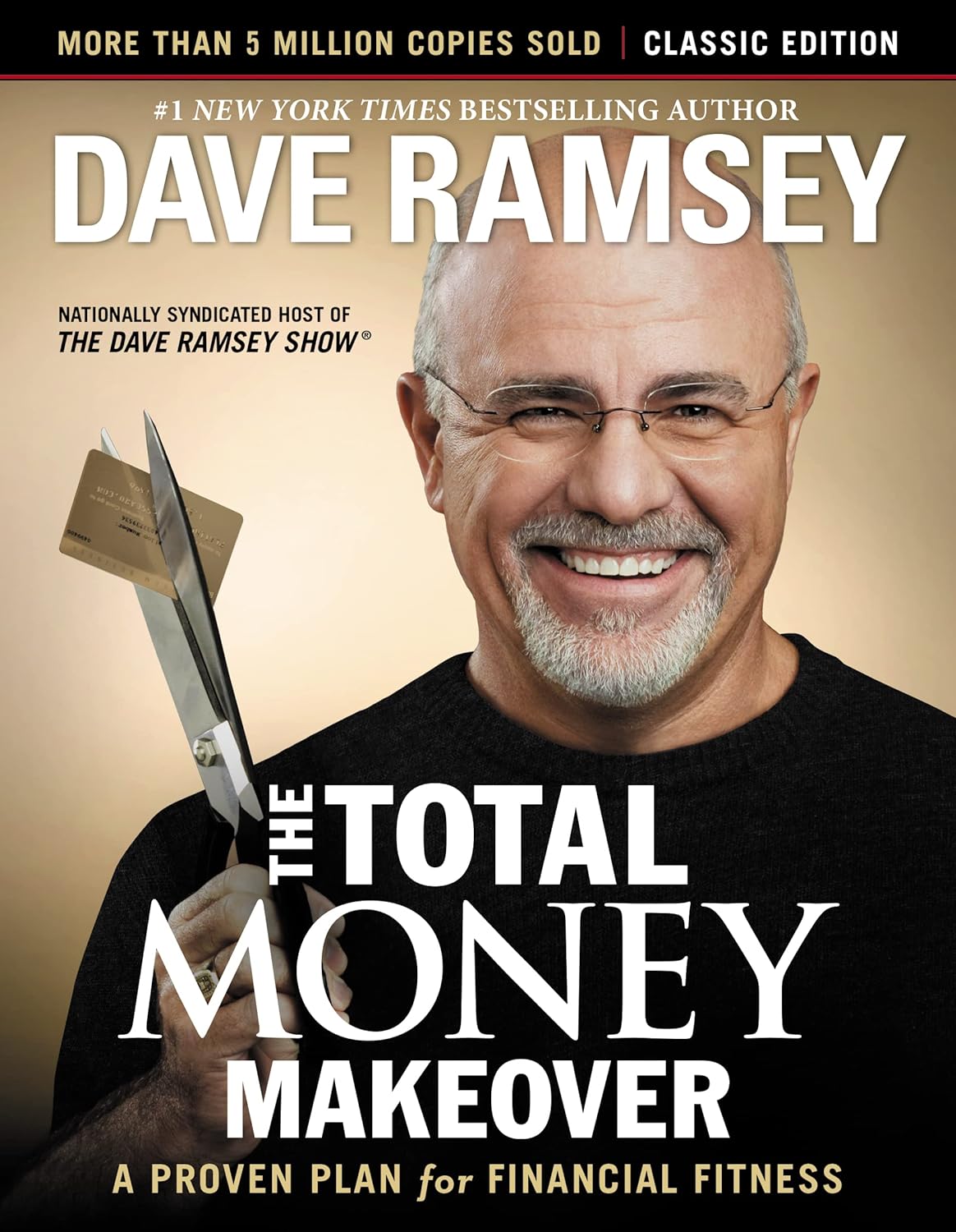
Description:
Dave Ramsey’s “The Total Money Makeover” stands as a transformative guide in the realm of personal finance. Ramsey, a renowned financial expert and radio host, presents a comprehensive plan to reshape financial destinies. The book is structured as a step-by-step guide, offering actionable advice on debt elimination, emergency fund creation, and building a robust financial foundation.
Key Takeaways:
Ramsey’s methodology centers on practical strategies such as the debt snowball method, which prioritizes paying off debts systematically. The book also emphasizes the importance of budgeting, living on a cash basis, and cultivating a mindset of financial discipline. Ramsey’s approach is straightforward, empowering readers to take control of their finances with a clear roadmap.
Why You Should Read It:
For those seeking a tangible, results-driven approach to financial transformation, “The Total Money Makeover” is a compelling choice. Ramsey’s no-nonsense style, coupled with real-life success stories, resonates with readers looking for practical steps to break free from the shackles of debt and build a secure financial future. The book serves as a powerful motivator for individuals committed to achieving lasting financial success through disciplined and intentional actions.
2. “Your Money or Your Life” by Vicki Robin and Joe Dominguez
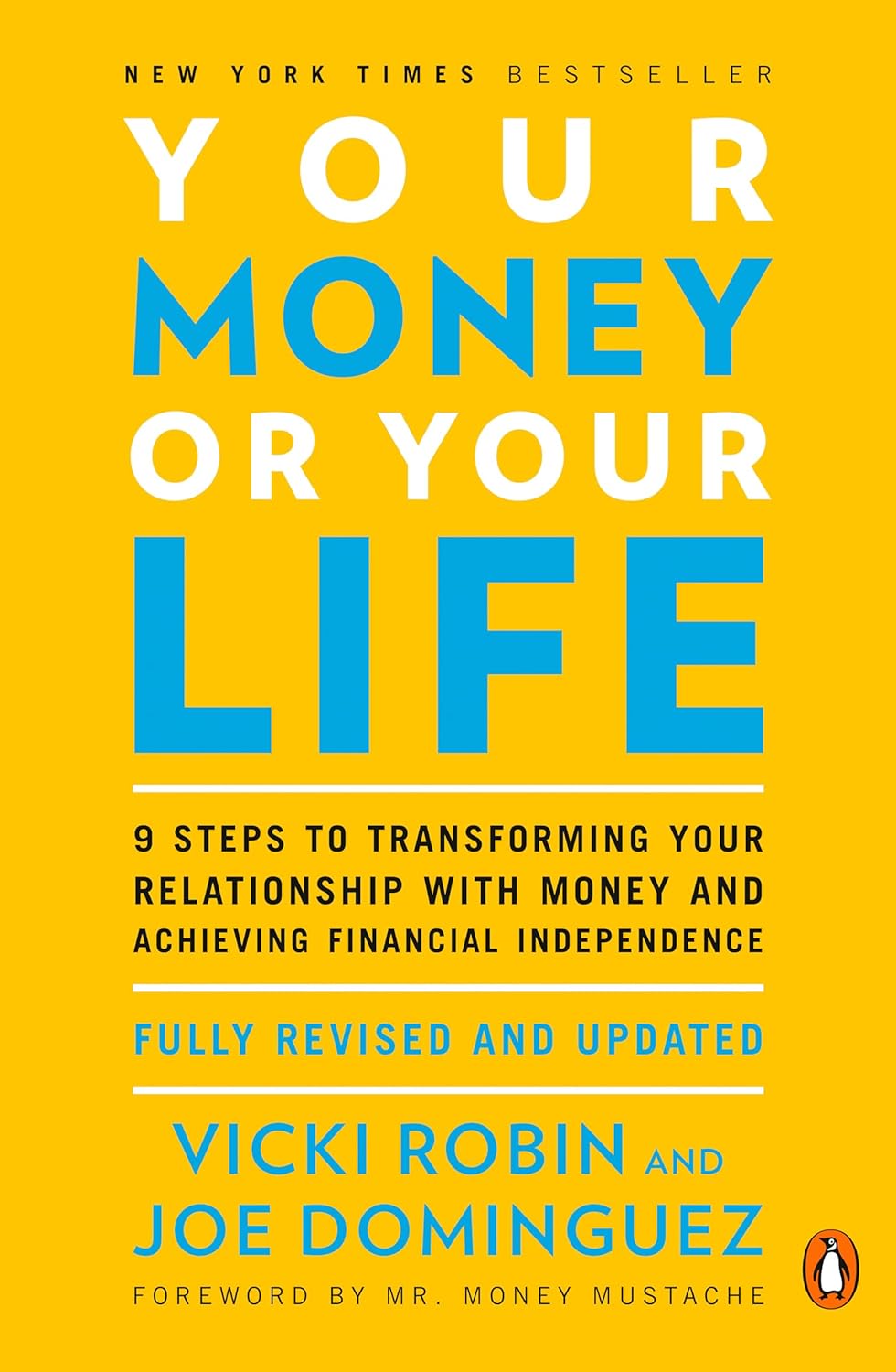
Description:
“Your Money or Your Life” by Vicki Robin and Joe Dominguez is a seminal work that transcends the conventional boundaries of personal finance literature. Grounded in a holistic approach, the book invites readers to reconsider the fundamental relationship between money and life satisfaction. This classic presents a nine-step program that extends beyond traditional budgeting, guiding readers towards financial independence and a deeper alignment of their spending with personal values.
Key Takeaways:
The book introduces a paradigm shift by encouraging readers to assess the true cost of their expenditures, value their time as a finite resource, and redefine what constitutes “enough.” It goes beyond the conventional metrics of financial success, urging individuals to evaluate the impact of their financial choices on their overall well-being.
Why You Should Read It:
“Your Money or Your Life” is a must-read for those seeking a profound connection between their financial choices and their life goals. The book’s emphasis on conscious spending, financial independence, and a values-based approach to money provides a roadmap for achieving a more purposeful and fulfilling life. If you aspire to integrate your financial journey with a deeper sense of purpose, this book offers a transformative perspective that extends beyond traditional personal finance advice.
3. “Rich Dad Poor Dad” by Robert T. Kiyosaki
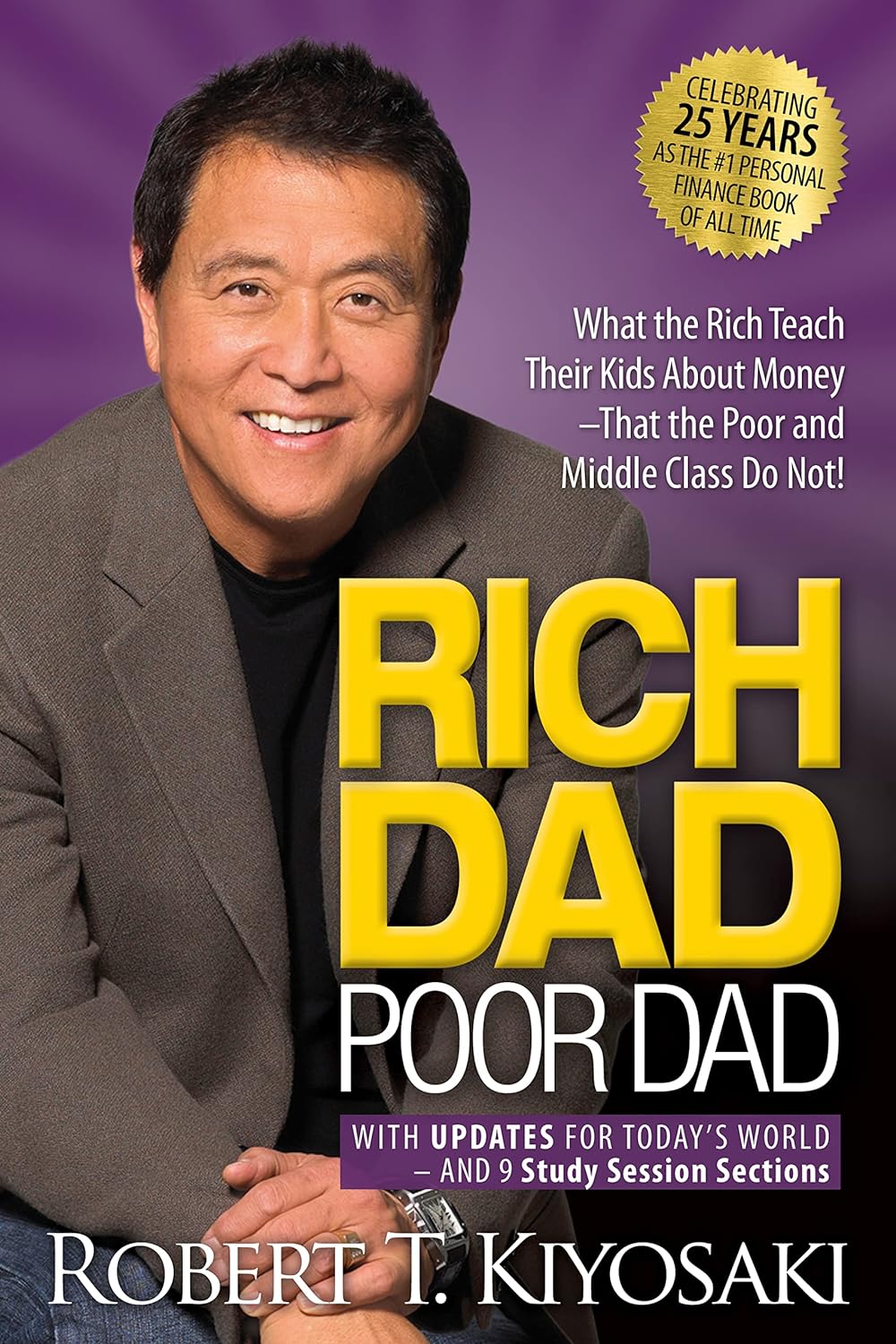
Description:
“Rich Dad Poor Dad” by Robert T. Kiyosaki is a groundbreaking exploration of financial philosophy and life lessons through the contrasting experiences of Kiyosaki’s two father figures: his biological father (Poor Dad) and the father of his childhood friend (Rich Dad). The book challenges traditional notions about money and success, providing readers with a unique perspective on wealth-building.
Key Takeaways:
Kiyosaki introduces fundamental concepts such as the difference between assets and liabilities, the importance of financial education, and the value of cultivating passive income streams. Through anecdotes and insights from both father figures, the book encourages readers to question conventional wisdom and embrace a mindset that fosters financial independence.
Why You Should Read It:
“Rich Dad Poor Dad” is essential reading for those seeking a paradigm shift in their approach to wealth creation. Kiyosaki’s narrative prompts readers to reevaluate their beliefs about money and challenges them to think differently about investments, education, and the pursuit of financial freedom. If you’re looking for a book that goes beyond traditional financial advice, offering a transformative perspective on wealth-building and financial education, “Rich Dad Poor Dad” is an invaluable guide.
4. “The Millionaire Next Door” by Thomas J. Stanley and William D. Danko
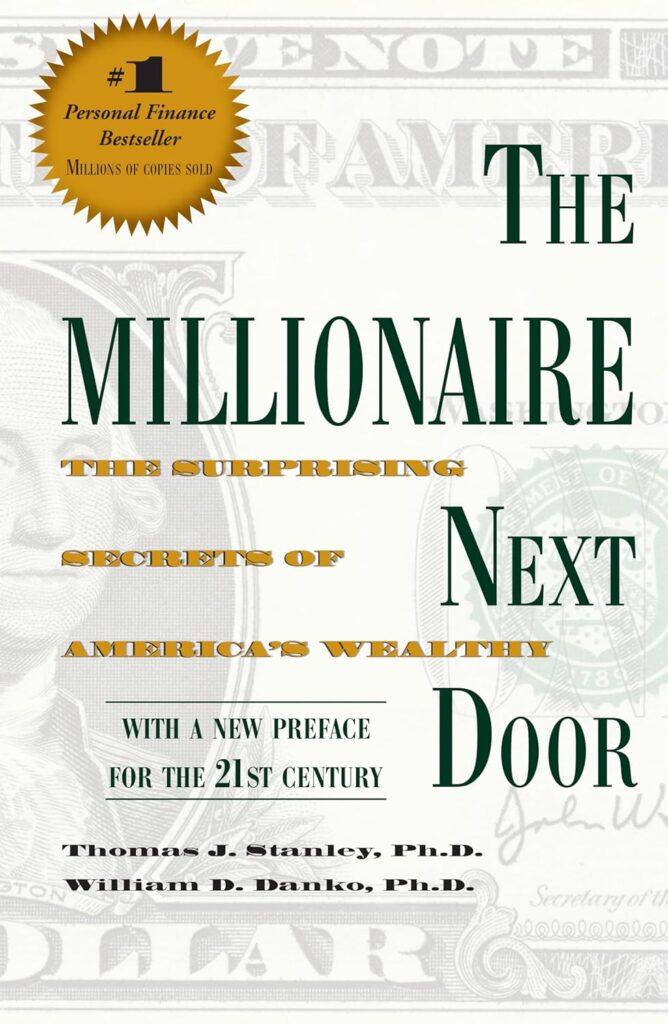
Description:
In “The Millionaire Next Door” authors Thomas J. Stanley and William D. Danko provide a compelling and data-driven exploration of the habits and characteristics of millionaires. Unlike common perceptions, the book reveals that many millionaires are not extravagant spenders but instead embrace frugality, disciplined saving, and conscious financial choices.
Key Takeaways:
The authors challenge stereotypes associated with wealth, emphasizing that millionaires often live unassuming lives. The book highlights the significance of financial discipline, strategic saving, and living below one’s means as crucial elements in the journey to financial success. Real-life examples and case studies punctuate the narrative, offering readers tangible insights into the habits of the wealthy.
Why You Should Read It:
“The Millionaire Next Door” is essential reading for those eager to debunk myths about wealth and understand the true drivers of financial success. The book offers a roadmap for anyone looking to accumulate and preserve wealth systematically. By learning from the behaviors of actual millionaires, readers can gain practical insights into building a solid financial foundation and achieving lasting prosperity. If you seek a data-driven and eye-opening exploration of the habits of the wealthy, this book provides valuable lessons applicable to individuals at any income level.
5. “Bogleheads’ Guide to Investing” by Taylor Larimore, Mel Lindauer, and Michael LeBoeuf
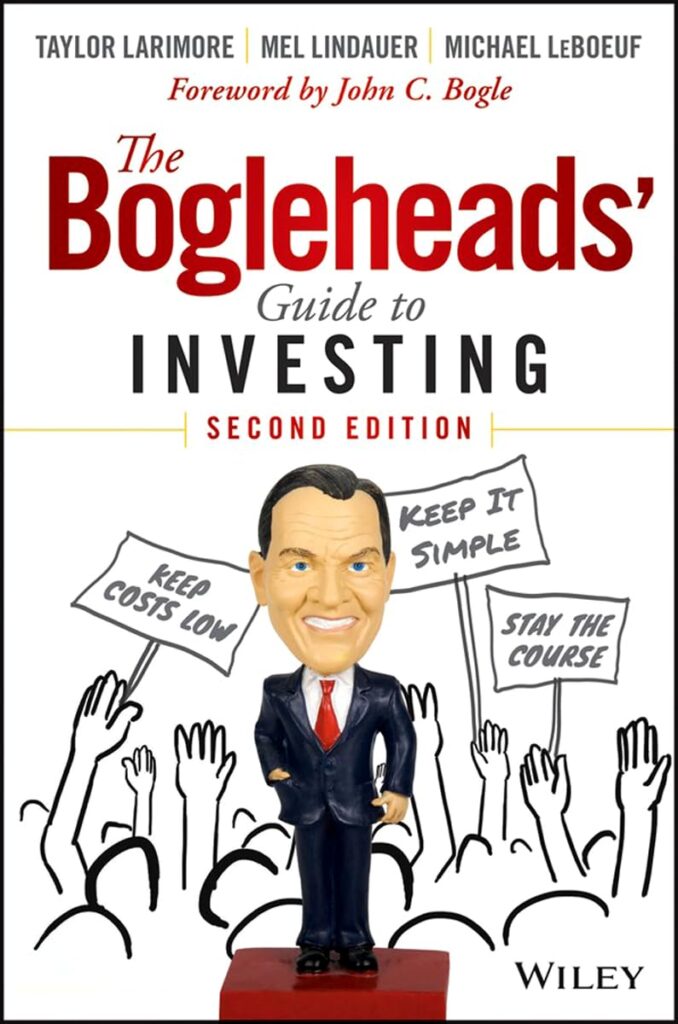
Description:
The “Bogleheads’ Guide to Investing” is a comprehensive and collaborative effort by Taylor Larimore, Mel Lindauer, and Michael LeBoeuf, embodying the investment philosophy of John C. Bogle, the founder of Vanguard Group. The book provides a detailed roadmap for investors, advocating for a simple, low-cost, and long-term approach to wealth creation through index fund investing.
Key Takeaways:
The Bogleheads emphasize the importance of diversification, low-cost investing, and maintaining a disciplined, buy-and-hold strategy. Grounded in the principles of John Bogle, the book demystifies the complexities of investing and empowers readers to make informed decisions aligned with their long-term financial goals.
Why You Should Read It:
Whether you’re a novice or an experienced investor, the “Bogleheads’ Guide to Investing” offers valuable insights into a time-tested investment approach. The book distills the wisdom of seasoned investors who have successfully implemented Bogle’s principles, providing practical advice and strategies that can lead to sustainable financial growth. If you’re seeking a reliable and straightforward guide to investment success, this book is an invaluable resource that aligns with the philosophy of one of the most respected figures in the financial industry.
6. “The Little Book of Common Sense Investing” by John C. Bogle
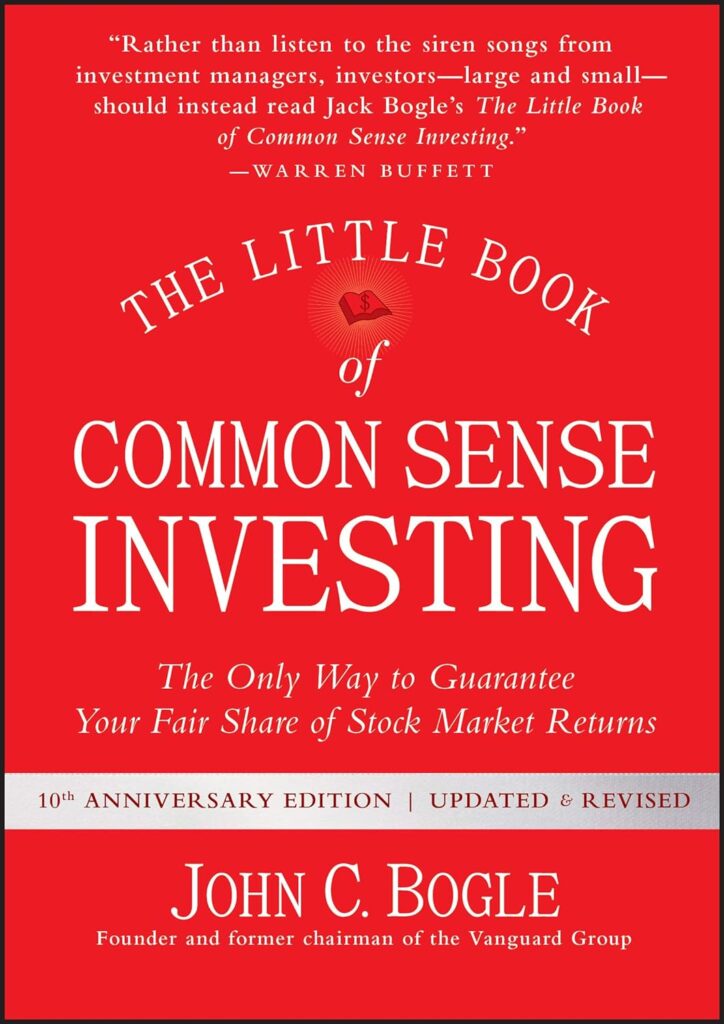
Description:
In “The Little Book of Common Sense Investing” the late John C. Bogle, founder of Vanguard Group, distills a lifetime of investment wisdom into a concise and compelling guide. Bogle advocates for a straightforward and accessible approach to investing: passive investing through low-cost index funds. The book serves as a persuasive argument against the complexities of active trading and market timing.
Key Takeaways:
Bogle dismantles the myth that beating the market consistently is a viable strategy. Instead, he champions the merits of a simple, long-term investment approach that involves owning a diverse portfolio of low-cost index funds. The book underscores the importance of minimizing costs, staying the course, and harnessing the power of compounding for long-term financial success.
Why You Should Read It:
For those seeking a compelling case for a commonsense investment strategy, “The Little Book of Common Sense Investing” provides a lucid and convincing narrative. Bogle’s advocacy for a low-cost, buy-and-hold approach offers a timeless philosophy that resonates with investors of all levels. Whether you’re a seasoned investor or just starting, this book serves as a foundational resource for understanding the principles of passive investing and building wealth prudently over time.
7. “A Random Walk Down Wall Street” by Burton Malkiel
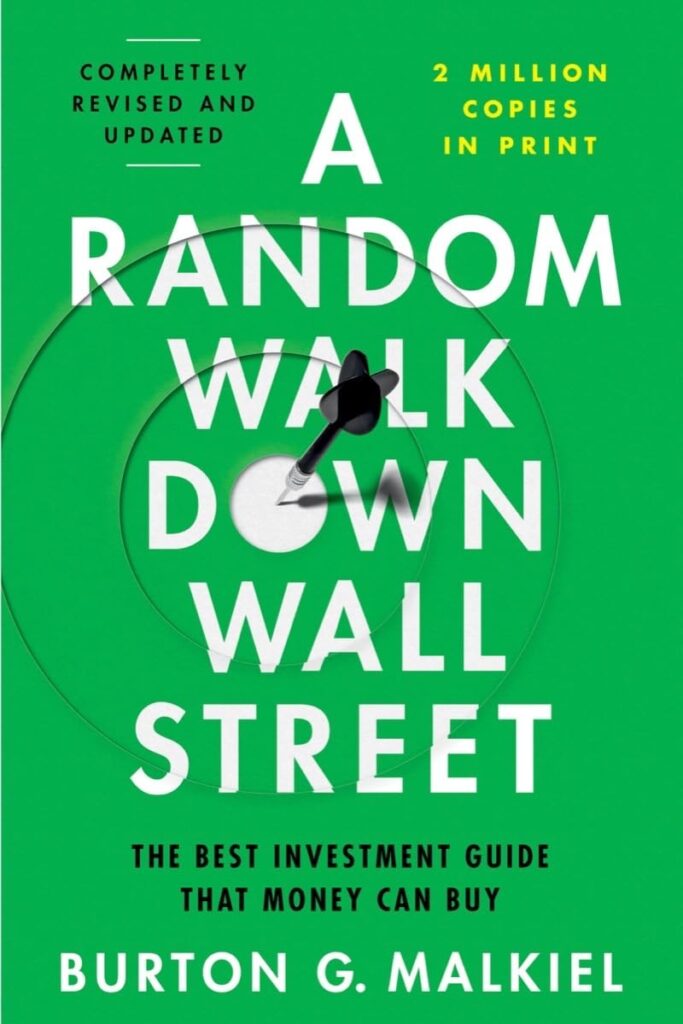
Description:
In “A Random Walk Down Wall Street” Burton Malkiel takes readers on an enlightening journey through the world of investment strategies and financial markets. Known for its accessible style, the book provides a comprehensive overview of various investment approaches, offering insights into the principles of successful investing.
Key Takeaways:
One of Malkiel’s central concepts is the “random walk” of stock prices, challenging the notion of consistently predicting market movements. The book covers an array of investment options, from individual stocks and bonds to mutual funds and real estate. Malkiel explores the efficient market hypothesis and emphasizes the importance of a diversified portfolio.
Why You Should Read It:
For those seeking a nuanced understanding of different investment strategies, “A Random Walk Down Wall Street” is an invaluable resource. Malkiel’s exploration of market trends, risk management, and the efficiency of financial markets equips readers with the knowledge needed to make informed investment decisions. Whether you’re a novice or an experienced investor, this book provides a solid foundation for navigating the complex landscape of Wall Street.
8. “The Richest Man in Babylon” by George S. Clason
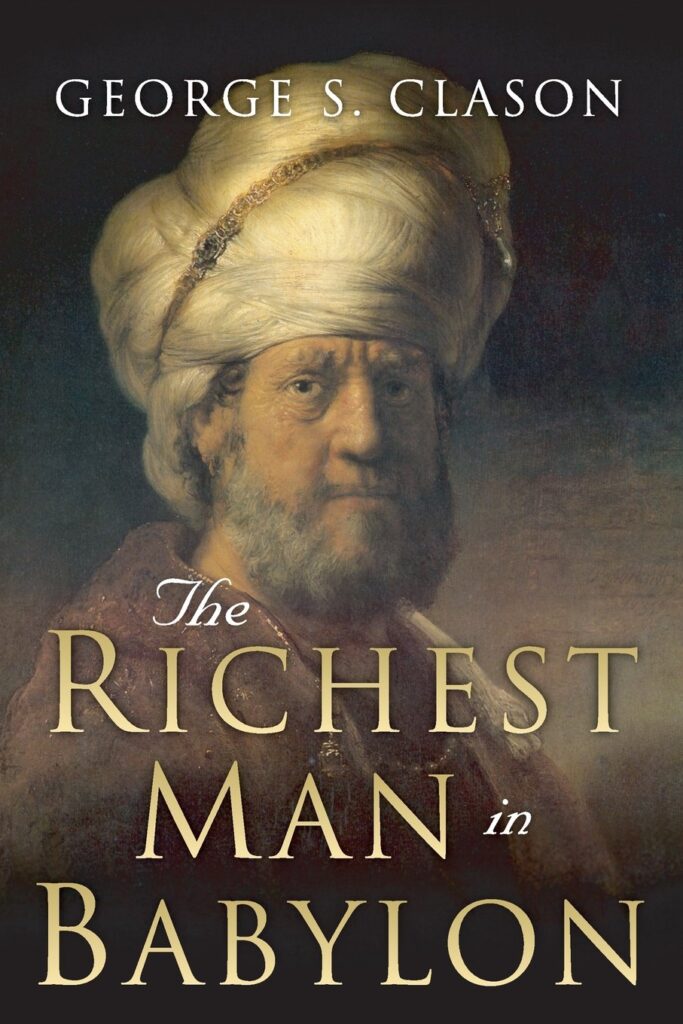
Description:
Set against the backdrop of ancient Babylon, George S. Clason’s “The Richest Man in Babylon” imparts timeless financial wisdom through a collection of captivating parables. The book presents a series of stories, each conveying essential principles of money management, wealth building, and financial prudence.
Key Takeaways:
The parables cover fundamental topics such as the importance of saving, investing wisely, avoiding debt, and making sound financial decisions. Through relatable characters and engaging narratives, Clason distills age-old financial principles into easily digestible lessons.
Why You Should Read It:
“The Richest Man in Babylon” stands out for its unique and engaging approach to teaching financial principles through storytelling. The book provides practical, actionable advice wrapped in the charm of ancient tales. Readers seeking an enjoyable yet instructive journey into the realms of financial wisdom will find this book to be a treasure trove of enduring lessons. Whether you’re a financial novice or a seasoned investor, the principles conveyed in this book are universally applicable and offer insights that withstand the test of time.
9. “I Will Teach You to Be Rich” by Ramit Sethi
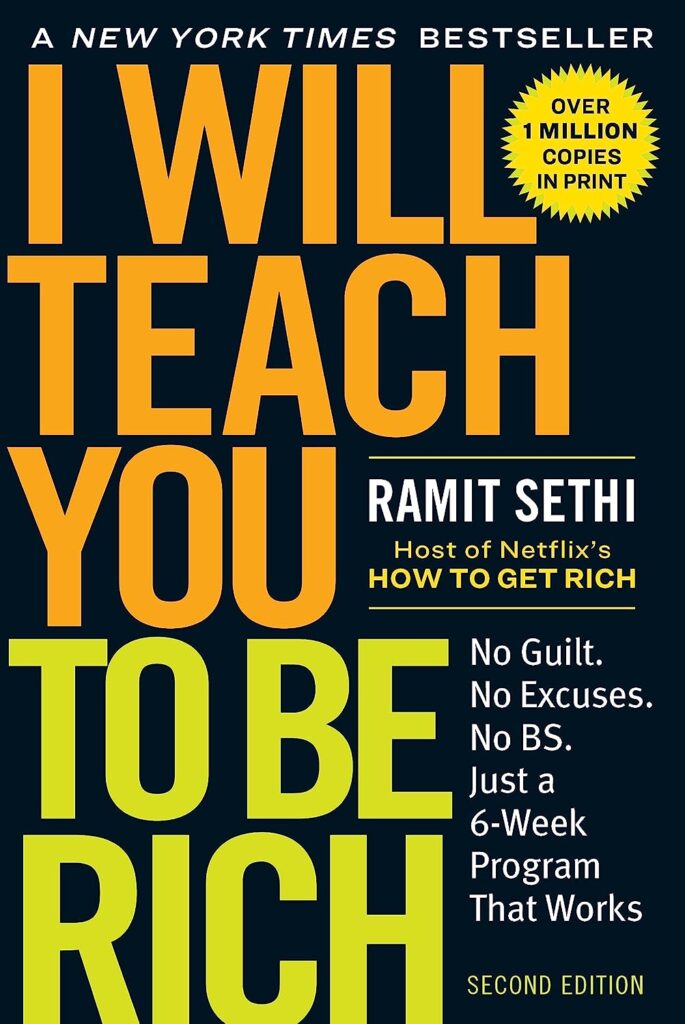
Description:
Ramit Sethi’s “I Will Teach You to Be Rich” is a modern and pragmatic guide to personal finance that caters to the contemporary reader. Sethi presents a six-week program designed to streamline financial processes, optimize spending, and effortlessly build wealth. Geared towards young adults, the book provides actionable advice to navigate the complexities of the modern financial landscape.
Key Takeaways:
Sethi covers a spectrum of financial topics, including banking, budgeting, investing, and entrepreneurship. The book emphasizes the importance of automation, conscious spending, and strategic financial planning. Sethi’s approach is accessible, incorporating humor and real-life examples to demystify financial concepts.
Why You Should Read It:
For those seeking a contemporary and relatable guide to managing money effectively, “I Will Teach You to Be Rich” offers actionable steps and a roadmap to financial success. Sethi’s conversational style and practical advice resonate with readers looking for a no-nonsense approach to personal finance. Whether you’re just starting your financial journey or looking to optimize your existing strategies, this book provides a refreshing and relevant perspective on wealth-building and financial well-being.
10. “The Automatic Millionaire” by David Bach
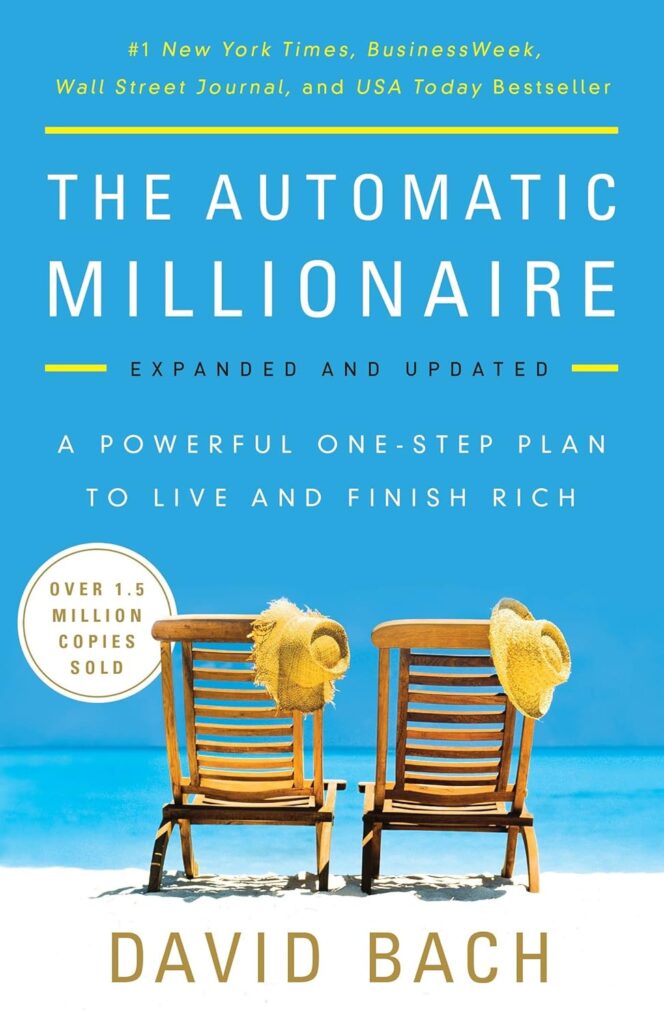
Description:
In “The Automatic Millionaire” David Bach introduces readers to the concept of “The Latte Factor,” demonstrating how small, consistent actions can lead to significant wealth over time. The book advocates for automating savings and investments.
Key Takeaways:
Bach emphasizes the power of compound interest, the importance of paying yourself first, and the impact of small daily habits. The book provides practical strategies for making wealth-building an automatic and effortless part of your financial life.
Why You Should Read It:
For those seeking a hands-on guide to building wealth through simple, automatic actions, “The Automatic Millionaire” is a must-read. Bach’s approach is accessible and realistic, making financial success achievable for anyone willing to implement his straightforward principles. By understanding the transformative potential of consistent, automated financial habits, readers can pave the way toward financial freedom with minimal effort.
11. “The Psychology of Money” by Morgan Housel
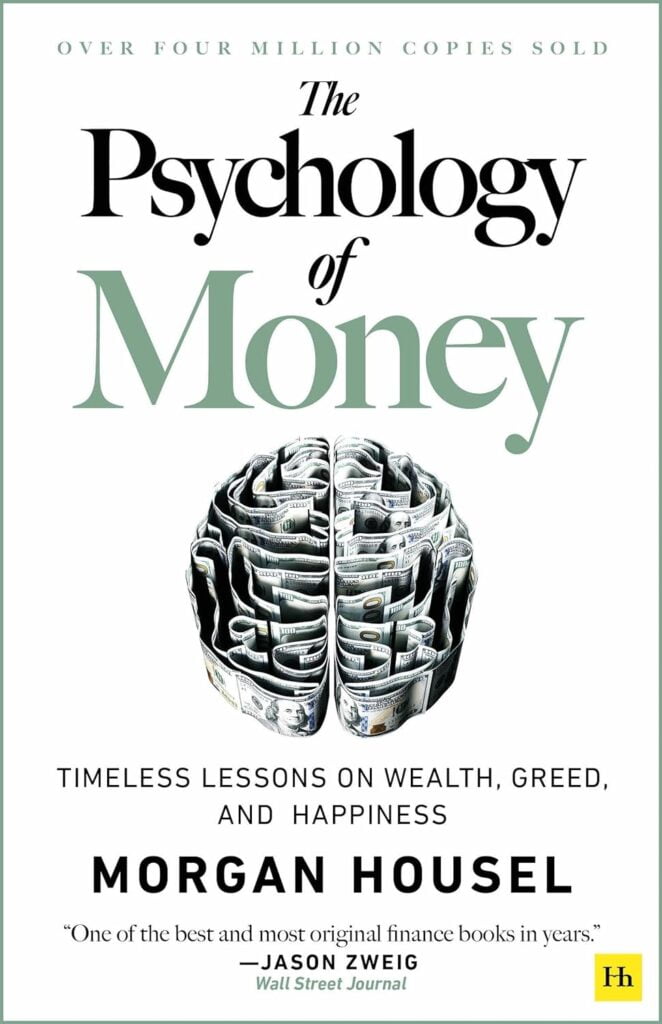
Description:
Morgan Housel’s “The Psychology of Money” takes readers on a captivating exploration of the emotional and psychological factors that influence financial decisions. Unlike traditional personal finance books, Housel delves into the behavioral aspects of money, unraveling the intricate interplay between human emotions and financial choices.
Key Takeaways:
Housel weaves together real-world anecdotes and insights, emphasizing the importance of understanding one’s own relationship with money. The book explores timeless principles such as the impact of patience, the role of humility in financial success, and the unpredictability of financial markets.
Why You Should Read It:
For those intrigued by the human side of finance, “The Psychology of Money” offers a refreshing perspective. Housel’s narrative skillfully combines behavioral psychology with practical financial wisdom, providing readers with a deeper understanding of their financial behaviors. By delving into the psychology behind money decisions, readers can gain valuable insights that go beyond traditional financial advice, ultimately fostering a more mindful and effective approach to managing their finances.
Conclusion
These books collectively form a comprehensive curriculum for mastering personal finance. Each offers a unique perspective, providing a mosaic of insights that, when combined, can empower individuals to navigate the intricacies of their financial lives with confidence and acumen. Whether you’re a financial novice or a seasoned investor, these books offer a treasure trove of wisdom to guide you on your journey toward financial mastery.
